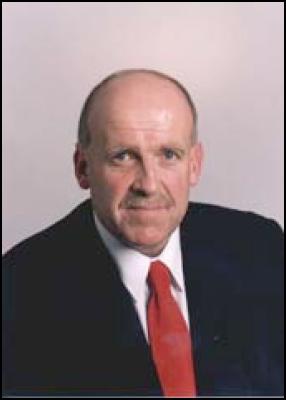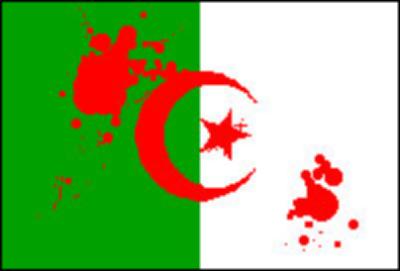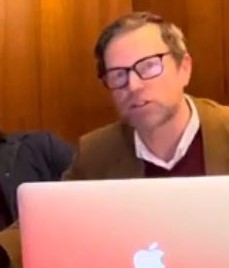Labour Cabinet Minister Tells Zaoui – Get On The Plane!
By Kevin List with assistance from Selwyn Manning
Yesterday whilst in the House during oral questions, Scoop was able to observe the reactions of MP's to the vexed question of detained refugee Ahmed Zaoui. Whenever the subject came up New Zealand First MP's would break into huge grins and loll about laughing. Young NZ First MP, Craig McNair when not blessed with a jovial smile found the entire issue rather a yawn and was often seen exposing his tonsils. National MP Wayne Mapp, evidently a dedicated Amnesty International member, must have been told a particularly amusing anecdote as he was often seen laughing.
Interestingly during the to-ing and fro-ing between Attorney-General, Margaret Wilson and Green MP, Keith Locke a voice kept ringing out urging Mr Zaoui to "Get on a plane" or "Go Home".
Initially Scoop considered this rather heartless cat-calling to have been floating from the Opposition benches, however on closer inspection it was discovered that Labour Cabinet Minister, David Benson-Pope was the culprit.

Labour Cabinet Minister David Benson-Pope
What made this interjection particularly interesting was the fact that Mr Benson-Pope's Government had just appealed a judicial decision for the second time regarding Mr Zaoui's human rights. The Government considered that the best person to deal with Mr Zaoui's human rights was not an independent judicial body [the Inspector-General of Intelligence and security] but rather the Minister for Immigration, Hon Paul Swain – Mr Benson-Pope’s cabinet colleague. Consequently he can't be put on a plane until this latest legal wrinkle receives a thorough hearing.
Scoop sought clarification from Mr Benson-Pope's office – initially when asked Mr Benson-Pope's Press Secretary Pete Coleman, thought the interjections may have been aimed at NZ First MP Dail Jones – however after Mr Coleman consulted with Mr Benson-Pope, it became clear that the remarks were aimed at Mr Zaoui [who was not of course present].
Minister Sincerely Thinks Zaoui Should Get Out
Pete Coleman: I had a chat to David and he thought the comments he made were 'tell him [Zaoui] to get on the plane' but you may have heard it differently in the bluster of the House. Those comments are sincere and he [Mr Benson-Pope] was trying to emphasise the same point that Margaret Wilson was in fact making that he [A genuine refugee adjudged to be at risk of torture and death] is free to leave anytime.
Scoop: So he was actually saying to 'get out of the country' then - that was pretty much it wasn't it?
Pete Coleman: Yep
Scoop: I just want to make this absolutely clear – he [Zaoui] has been adjudged a genuine refugee and a Labour Cabinet Minister was saying, 'Just get on the plane and get out of the country'?
Pete Coleman: Well he's free to leave at any time!
Scoop: Where is he going to go by the way?
Pete Coleman: I didn't ask him [Benson-Pope] that question.
Scoop: Would it be possible to find out where David Benson-Pope thinks he could go?
Pete Coleman: Yep!
Unfortunately despite Mr Coleman's statement that he would ascertain where Mr Benson-Pope thinks the detained Algerian refugee and ex-MP should go, Scoop remains none the wiser a day later. Mr Coleman failed to return any calls to Scoop on Thursday evening. This morning when asked to go on record about where Mr Benson-Pope considered Mr Zaoui could safely go Mr Coleman physically turned off the running tape recorder and refused to go on record about anything to do with Mr Zaoui.
Meanwhile sources have informed Scoop that Mr Benson-Pope is by no means the only Labour Cabinet Minister to think Ahmed Zaoui should get on a plane and leave – regardless of the consequences to Mr Zaoui - this is of course the same Government that repeatedly claims it intends to be a "world leader" in respect human rights.
It is generally thought that the only country likely to willingly accept Mr Zaoui should he leave NZ is Algeria.
The New Zealand Government, and its Cabinet ministers appear to have forgotten that torture and killings continue in Algeria, and that the terror organisation that has ordered Zaoui be killed, the GIA – who ironically the NZ Govt. originally accused Zaoui of being a member of - has the ability to carry out its threat.

In spite of claims from an Algerian military spokesman spoken to by TVNZ that Zaoui will be safe if he returns to Algeria and refrains from talking about politics the record shows not only that torture continues as a routine tool of security administration and for the suppression of political opposition in Algeria, but also that Ahmed Zaoui was himself tortured with a blowtorch by Algerian security police well before the 1991 elections because he dared to speak out about human rights abuses.
Documented evidence of recent torture inside Algeria was published by Amnesty International in late 2003. It cites as an example the arrest, detention and torture of a former FIS member, his brother and 16 year-old son by Algeria’s security forces.
"Ahmed Ouali, a 42-year-old shopkeeper and father of five, was arrested around midnight on 12 January 2002 with his 29-year-old brother, Fouad, and 16-year-old son, Mohamed, at their home in an outlying district of the capital, Algiers. Ahmed is a former activist with the banned Islamist party, the FIS."The three were arrested by security force agents wearing plain clothes and travelling in unmarked cars, who took them to the Military Security detention centre of Ben Aknoun in Algiers. They were held there for nine days, until appearing before a magistrate on 21 January 2002. During that time, Ahmed was allegedly tortured with electric shocks and by the chiffon method (see page 10 for an explanation of the term), as well as being hung by a rope attached to the ceiling. When he appeared before the magistrate, he reportedly complained about the torture he had received, indicating traces of the injuries he sustained which were still visible on his body.
"Ahmed was apparently forced, while blindfolded, to sign a police statement "confessing" his involvement with an armed group and was reportedly beaten when he asked to read its content. He was allegedly made to understand that his brother and son had been arrested and interrogated in order to make them testify to his guilt. Fouad, who suffers from diabetes, was reportedly subjected to the same torture methods as his brother. Mohamed was reportedly beaten.
"Ahmed and Fouad were charged on 21 January 2002 with belonging to a "terrorist" organization and await trial, while Mohamed was released without charge. At the time of writing Ahmed was detained in El-Harrach Prison in Algiers; Fouad had been provisionally released. During their nine days in Ben Aknoun, no member of the Ouali family, some of whom witnessed the arrests, was informed of the whereabouts of their relatives. No investigation is known to have been undertaken into the allegations of torture."
Amnesty’s investigations showed members or sympathizers of the banned Front islamique du salut (FIS) a.k.a. Islamic Salvation Front, as well as members of their families remain vulnerable to human rights abuses.
In a report in 2003 the NGO stated: “Amnesty International is aware, for example, of recent cases of FIS members or sympathizers who have been tortured by the security forces. It is believed that they were tortured in order to extract information about a human rights lawyer living abroad who defended FIS members when he worked in Algeria.”
Investigations show the majority of torture cases recorded in the last two to three years were carried out by operatives of Sécurité militaire (Military Security) and a security service bearing the official title of the Département du renseignement et de la sécurité (DRS) (Department of Information and Security) formally under the authority of the Ministry of Defence. The torture is generally alleged to have taken place inside military compounds, most notably the centre of Ben Aknoun in Algiers.
“Some victims have reported being whipped and slashed with sharp implements, or being strangled almost to the point of suffocation. Others have had cigarettes extinguished on their body or face, had burning cigarette ash thrown into their eyes, or been scorched by a soldering iron. Some victims have had electricity applied to their bodies, often to sensitive organs such as the genitals. To increase the pain, the victim’s body may be soaked first in water. Some victims have reported being threatened with sexual violence, sometimes after being undressed and tied up,” the Amnesty International report stated.
It continued: “One noticeable development in the last two or three years is the relative increase in the use of methods which leave few traces. The so-called chiffon method of torture, in which the victim is tied down and forced to swallow large quantities of dirty water, urine or chemicals through a cloth placed in their mouth, is one such example.
“The purpose of torture in most cases appears to be to extract statements or ‘confessions’ from the person held in custody, often by forcing detainees to sign statements which they have not read. In cases involving what the government describes as 'terrorist' activities, the statement usually implicates them as being linked in some way with an armed group. In cases involving political protesters, torture may also be used by the security forces to punish the detainee and deter others from taking similar action,” the Amnesty report stated.
In light of such reports David Benson-Pope's remarks do not appear to support the NZ Government's stated ambition to be a global leader in human rights.
ENDS



 Richard S. Ehrlich: Deadly Border Feud Between Thailand & Cambodia
Richard S. Ehrlich: Deadly Border Feud Between Thailand & Cambodia Gordon Campbell: On Free Speech And Anti-Semitism
Gordon Campbell: On Free Speech And Anti-Semitism Ian Powell: The Disgrace Of The Hospice Care Funding Scandal
Ian Powell: The Disgrace Of The Hospice Care Funding Scandal Binoy Kampmark: Catching Israel Out - Gaza And The Madleen “Selfie” Protest
Binoy Kampmark: Catching Israel Out - Gaza And The Madleen “Selfie” Protest Ramzy Baroud: Gaza's 'Humanitarian' Façade - A Deceptive Ploy Unravels
Ramzy Baroud: Gaza's 'Humanitarian' Façade - A Deceptive Ploy Unravels Keith Rankin: Remembering New Zealand's Missing Tragedy
Keith Rankin: Remembering New Zealand's Missing Tragedy